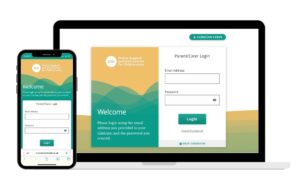 The University of Oxford technologies, Online Support and Intervention for Child Anxiety (OSI) and Online Social anxiety Cognitive therapy for Adolescents (OSCA) were among four digital tools recommended for use in the NHS that can help children and young people with mild to moderate symptoms of anxiety or low mood.
The University of Oxford technologies, Online Support and Intervention for Child Anxiety (OSI) and Online Social anxiety Cognitive therapy for Adolescents (OSCA) were among four digital tools recommended for use in the NHS that can help children and young people with mild to moderate symptoms of anxiety or low mood.
The recommendation, from an independent NICE committee, is the first ever published as part of the National Institute for Clinical Excellences (NICE) new Early Value Assessment (EVA) for medical technologies, a speedier alternative to the ‘NICE medical technologies guidance’ typically used for such treatments.
Health and Social Care Secretary, Steve Barclay, said:
“It is incredibly important children and young people can access mental health services when they need it, and these new guided self-help tools will allow those between 5 and 18 to learn techniques for support when they are available in future.
OSI is an online, parent-led and therapist-supported resource designed to help children overcome problems with fears, worries, and anxiety. It also comes with an optional game app that can help to motivate children to give strategies a try with their parent/carer.
Developed with the support of the NIHR ARC OxTV and Oxford Health Biomedical Research Centre, OSI is based on the latest evidence on how to help children aged 5-12 years old overcome problems with fears, worries, and anxiety, and was developed in collaboration with parents, carers, children, NHS professionals, researchers, a technology company, and others with relevant personal experience.
OSCA, developed with the support of the NIHR Oxford Health BRC, is an evidence-based, secure, online 10-week treatment programme developed to help treat social anxiety in those aged 11 to 19 years old. Social anxiety is a very common problem among this age group and can make life extremely difficult for those experiencing it.
Over the ten weeks young people taking part in OSCA work through online exercise modules (available via laptop, desktop, or mobile devices), supported by weekly video calls with a practitioner to help answer questions and guide them through the treatment.
Both projects were selected and assessed as part of the EVA, which specifically looked at promising technologies that can be used to address unmet needs in NHS priority clinical areas of mental health.
The next step to these technologies being used country-wide is approval by NHS England’s Digital Technology Assessment Criteria (DTAC). The NICE guidelines will then be changed to include this new information, and the NHS will be given a recommendation about how often it should be used.
Cathy Creswell , Professor of Developmental Clinical Psychology at the Department of Experimental Psychology, University of Oxford, who led the development of OSI, said:
, Professor of Developmental Clinical Psychology at the Department of Experimental Psychology, University of Oxford, who led the development of OSI, said:
“We are delighted that NICE, via the EVA, have recognised the potential of both treatments to improve outcomes for children and young people experiencing mental health problems.
This is an important next step in realising the benefits of these evidence-based treatments across the NHS and making a real difference to the lives of children, young people and their families.


